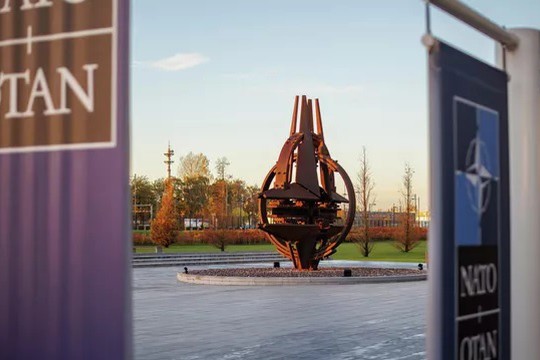Europe and the United States are on the verge of the most momentous conscious uncoupling in international relations in decades.
Since 1949, NATO has been the one constant in world security. Initially an alliance among the United States, Canada, and 10 countries in Western Europe, NATO won the Cold War and has since expanded to include almost all of Europe.
NATO has been the single most successful security grouping in modern global history.
NATO also might collapse by 2025, Phillips Payson O’Brien, a professor of strategic studies at the University of St. Andrews in Scotland, stresses.
The cause of this collapse would be the profound difference in outlook between the Republican Party’s populist wing — which is led by Donald Trump but now clearly makes up the majority of the GOP — and the existential security concerns of much of Europe. The immediate catalyst for the collapse would be the war in Ukraine. When the dominant faction within one of the two major American political parties can’t see the point in helping a democracy-minded country fight off Russian invaders, that suggests that the center of the political spectrum has shifted in ways that will render the U.S. a less reliable ally to Europe. The latter should prepare accordingly.
The past few weeks have revealed that Trump’s pro-Russian, anti-NATO outlook isn’t just a brief interlude in Republican politics; suspicion of American involvement in supporting Ukraine is now the consensus of the party’s populist heart. During last week’s GOP presidential debate, Ron DeSantis and Vivek Ramaswamy — the two candidates most intent on appealing to the party’s new Trumpist base — both argued against more aid for Ukraine.
Trump did not take part in the debate, but he has previously downplayed America’s interest in an Ukrainian victory and has seemed to favor territorial concessions by Ukraine to Russia. He, DeSantis, and Ramaswamy are all playing to the same voters — who, polls suggest, make up about three-quarters of the Republican electorate.
Another bellwether is the Heritage Foundation, a prominent conservative think tank that has played an outsize role in GOP policy circles since the Reagan years.
More recently, Heritage officials have called for halting aid until the Biden administration produces a plan to end the war — which is an impossible goal unless Russia agrees. Demagogues on the right are taking Putin’s side even more overtly. The talk-show host Tucker Carlson, for instance, in a August address in Budapest, maintained that anti-Christian bias motivated American opposition to Russia.
The growing sentiment on the American right against supporting Ukraine represents an extraordinary challenge to the future of NATO.
Even if Joe Biden wins reelection, Republican control of the House, Senate, or both could substantially weaken U.S. support for the Ukrainian effort. And if Trump or one of his imitators wins the presidency in November 2024, Europe could find itself faced with a new American administration that will halt all support for Ukraine.
Such a move would make the U.S. itself an obstacle to a long-term free and stable Europe. It would split the Atlantic alliance, and European states have not prepared themselves for that possibility.
The reality is that, for many years, Europe has largely slipstreamed behind the U.S. on security matters. This has provided real benefits to the U.S., by solidifying American leadership in the world’s most important strategic grouping while allowing European states to spend far less on defense than they would otherwise have to. The differential also means that Europe, on its own, lacks the breadth and depth of U.S. military capabilities.
What leaders in Europe have to face, as a pro-Russia, anti-Ukraine position solidifies in the Republican Party, is the prospect of having to do most of the heavy lifting to help Ukraine win the war.
If the United States simply abandons Ukraine a year and a half from now, there is no way whatsoever that Europe could make up for the loss of aid.
But if Europe fails to embark soon on a unified, collective military-production plan, countries in the west and south that feel less threatened by Russian aggression might be inclined to follow the lead of a new American administration that backs away from Ukraine and tries to cut a deal with Russia. The result could be a legacy of bitterness and distrust at best, and a permanent fracturing of European cooperation at worst.
If the Europeans don’t start planning for the worst-case scenario, they will have no one to blame but themselves.
read more in our Telegram-channel https://t.me/The_International_Affairs

 11:28 04.09.2023 •
11:28 04.09.2023 •























